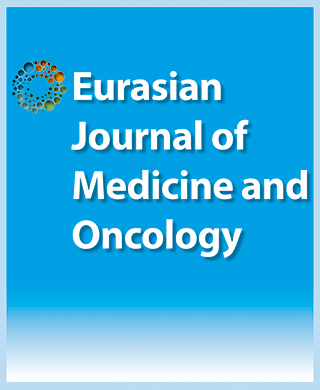

Construction and Validation of Immune-related LncRNAs Signature to Predict the Prognosis and Therapeutic Efficacy of Breast Cancer
Shujing Wang1, Jing Yang2, Qin Tang3, Qiang Wu31Department of Pathology, The Second Affiliated Hospital of Anhui Medical University, Hefei, Anhui, China, 2Department of Breast Surgery, Department of General Surgery, The First Affiliated Hospital of Anhui Medical University, Hefei, China, 3Department of Pathology, School of Basic Medical Sciences, Anhui Medical University, Hefei, China,
Objectives: Breast cancer ranks first in morbidity and mortality among women worldwide. Herein, we constructed immune-related long non-coding RNAs (irlncRNAs) signature that could predict breast cancer prognosis. Methods: The data of breast samples were downloaded from TCGA. Differentially expressed irlncRNAs (DEirlncRNAs) compared tumor with normal samples were obtained. Established a prognostic model after DEirlncRNAs were cyclically and separately paired. The model's accuracy was validated using ROC curve, survival analysis, clinicopathological fea tures, tumor-infiltrating immune cells, immune checkpoints, and chemotherapeutic treatment. Quantitative real-time PCR was used to analyzed the risk score of breast cancer samples. Results: Fifteen DEirlncRNAs pairs were selected to construct the prognostic model and distinguish high- or low-risk groups. Patients in high-risk group had poorer prognosis, more aggressive clinicopathologic features, lower expres sion of immune checkpoints, and higher drug sensitivity than those in low-risk group. For tumor-infiltrating immune cells, the high-risk group was positively related to cancer-promoting immune cells and negatively associated with anti cancer immune cells. In clinical samples, risk score was positively correlated with patient age and KI67 index. Conclusion: We constructed a prognostic model, which based on fifteen pairs of irlncRNAs, predicting both prognosis of breast cancer and efficacy of immunotherapy and chemotherapy as well. Keywords: Breast cancer, the cancer genome atlas, immune-related gene, long non-coding RNA, prognostic
Cite This Article
Wang S, Yang J, Tang Q, Wu Q. Construction and Validation of Immune-related LncRNAs Signature to Predict the Prognosis and Therapeutic Efficacy of Breast Cancer. EJMO. 2023; 7(4): 350-361
Corresponding Author: Shujing Wang



